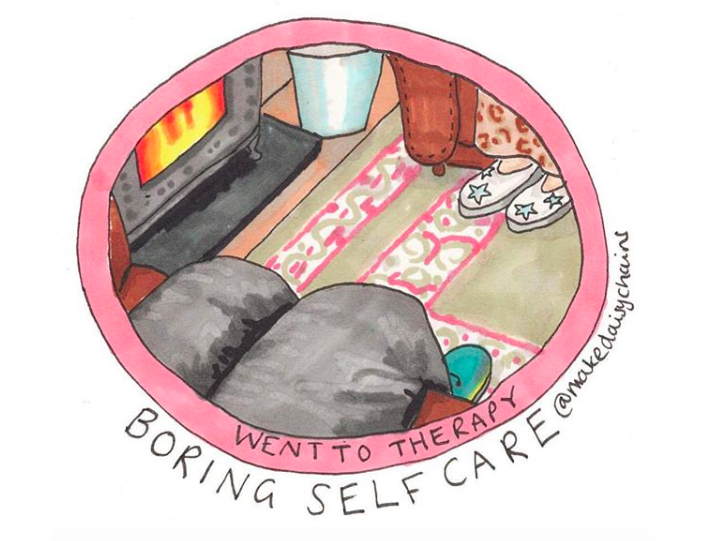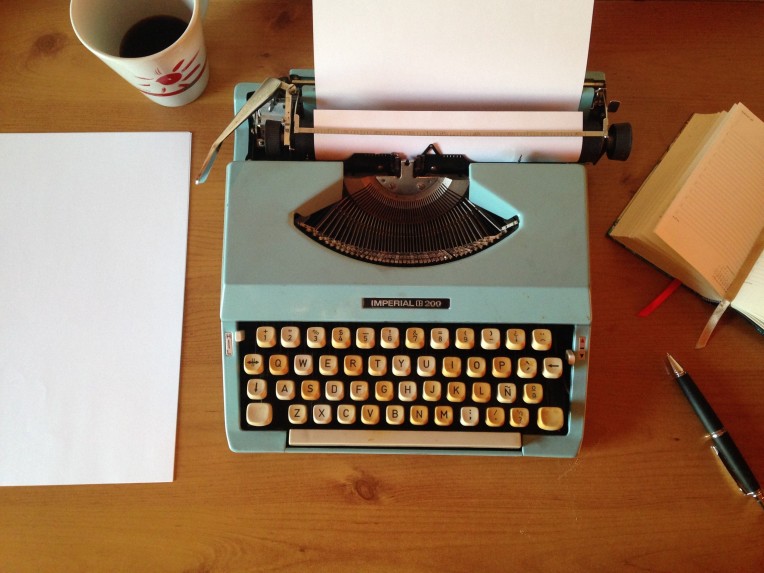
(Essay originally appeared in Slutmouth Magazine on October 18, 2018.)
Therapy and other mental health treatments, particularly in the United States, are a privilege.
Not all insurance companies cover mental health services, and if they do, they often make you go through your deductible before allowing you to use the specialist copay rate, or they may limit the number of visits you can have per calendar year. For example, if your therapist recommends that you have weekly sessions, you may not be able to do that without incurring high out-of-pocket costs.
With deductibles, they reset each year so you’ll find yourself repeating the process of paying high out-of-pocket costs to seek mental health services.
That is, if the therapist even accepts your insurance. Many therapists do not take certain private insurance plans or Medicaid, or any insurance at all. A few years ago – when I first started seeking therapy services – I ran into this problem. After cross-referencing the information I found on a “find a therapist” website and my insurance company’s “find a doctor” function, I called a number of therapists only to find out they weren’t actually covered under my insurance because they went out-of-network and the information hadn’t been updated.
Another problem with trying to find a therapist or a psychiatrist is that many times they are not accepting new patients because they are already stretched too thin due to lack of providers in the area. According to Mental Health America, “there’s only one mental health professional per 1,260 people” in Alabama.
For me, it took several weeks to be placed with a counselor where I currently seek therapy. There isn’t a shortage of mental health professionals in my area, but they are still stretched thin. I am supposed to have weekly sessions but there have been weeks where I have not been scheduled sessions because they were simply too booked and had no availability when I was available for a session.
And forget if you have to work a standard 9-to-5 schedule. Not many therapists or psychiatrists have late hours and if they do, they are often always booked which is another roadblock that makes treating mental health conditions a challenge.
Sure, there are telehealth options such as Talkspace and BetterHelp, and moodgym for online self-help, but they do not provide the same benefits as in-person therapy. I used BetterHelp for about a year and although there were many pros to using it such as flexibility in being able to contact my therapist and lower costs compared to traditional in-person therapy, I found that I personally would benefit better from face-to-face therapy. I am not knocking these types of counseling, because I think for some people they are really helpful and a great stepping stone. It was helpful for me for a time, so I would not call it a bad experience. It worked until I outgrew it.
My current therapist, who I see most weeks once per week, uses a combination of Cognitive Behavioral Therapy and mindfulness techniques to help me understand my thoughts and behaviors. I have bipolar disorder, anxiety, ADD, and recently went through (and in some ways still am going through) the grieving process of losing a close loved one. I also have some past trauma as part of being an adult child of an alcoholic. Being able to speak to someone, see their reactions and work together on therapy worksheets instead of just completing them on my own, has been incredibly helpful already. I know I have a long way to go on my journey to managing my conditions, but I am grateful that I am able to make it work despite the high cost.
I am one of the patients whose insurance company wants them to use the deductible first before any copay rates. I have a deductible of $1,500. I doubt I will meet my deductible before the end of the year, and it will reset in January (and the premium will go up too but that’s another story). I consider myself lucky that the rate to see my therapist is not as high as some other therapist’s offices in the area where I live. I pay $100 for the first visit of the calendar year, and $86 for subsequent visits. Don’t get me wrong, these are still pretty high costs for therapy visits considering I was paying $90 per month after financial assistance for unlimited access to a therapist through BetterHelp. In some ways, because I do not work full-time, being forced to skip a week due to lack of availability on my therapist’s end has been a blessing in disguise… at least for my wallet.
Access to therapy and other mental health services is incredibly important, whether you have a mental health condition or not. Simply going through a life change and having a therapist to talk to can be incredibly beneficial. I think that everyone can benefit from therapy at some point in their life, whether it is individual or group therapy.
I have gone through several therapists. I had a therapist in high school, a counselor at the first college I went to and a couple of BetterHelp therapists before seeing my current therapist. I tried out a therapist who was part of my primary care physician’s medical group, but it didn’t work out because I would have gone three weeks between sessions because she was that overbooked.
Some folks have to vet a therapist and make sure their views line up with their beliefs, values, and identities. If you are LGBTQIA you definitely do not want a therapist who has views that are harmful to your identities and values. That is an extra step that can be costly both in time and money (but unfortunately necessary) to do.
Once you have found a therapist and – when appropriate – you have a diagnosis, you may be recommended to see a psychiatrist or other doctor who can prescribe you medication to help manage your conditions alongside therapy. The process of finding a doctor to prescribe medication is similar to finding a therapist: Where are they located? Do they take my insurance? Are they accepting new patients? What are their views on X subject?
Location is also incredibly important. Some people travel up to one hour for their appointments. The most I have ever traveled to see a doctor was 2.5 hours on public transit. At the time, they were the closest doctor who took my insurance and was accepting new patients. My current doctor may be going out-of-network, or at least was considering it, which will mean that I have to start the process of finding a doctor all over again. Or maybe my doctor won’t go out of network and I won’t have to pay $150 per month for a 5 minute appointment. Who knows. I surely don’t.
Access to mental health services should not be a privilege, but it is. It requires a lot of time and out-of-pocket costs. The stigma around mental health has decreased over the years, so why is our access to these services not improving? In MHA’s report, over 43 million American adults have a mental health condition and 56 percent of American adults with a mental health condition did not receive treatment. Access to care for youth is limited too, with 7.7 percent of youth having no access to mental health services through their private insurance.
Mental health services should be as accessible as going to a primary care physician’s office. We should not have to jump through hoops to take care of ourselves. A lot of times it is easier to get treatment for bronchitis than it is for anxiety or major depressive episodes because you can just walk into an urgent care office or (usually) easily schedule a doctor’s appointment. Why make mental health services so much more difficult to gain access to? What is the benefit of doing so?
Health insurance companies, lawmakers, I’ll be waiting for your response.



You must be logged in to post a comment.